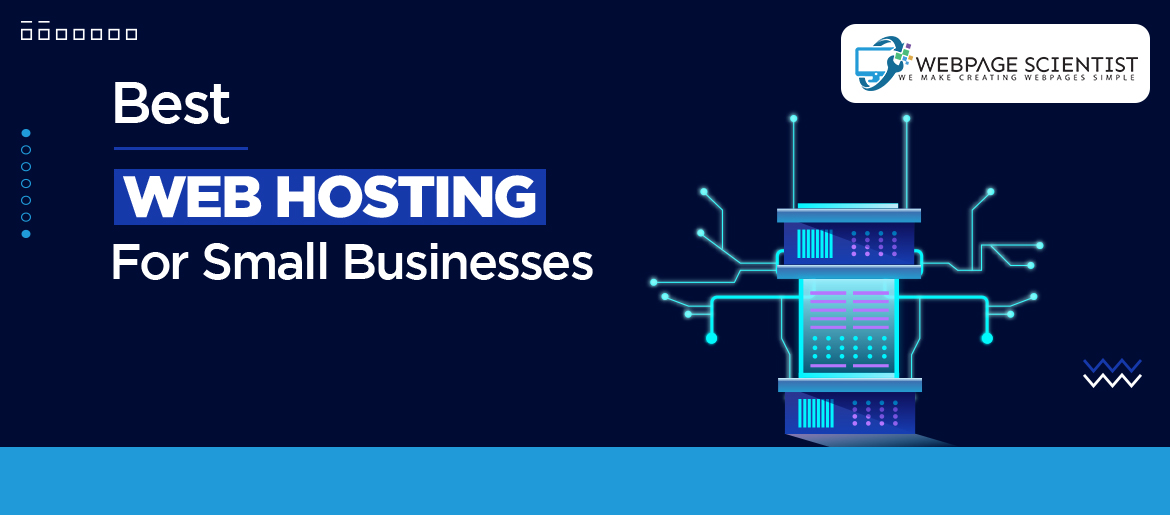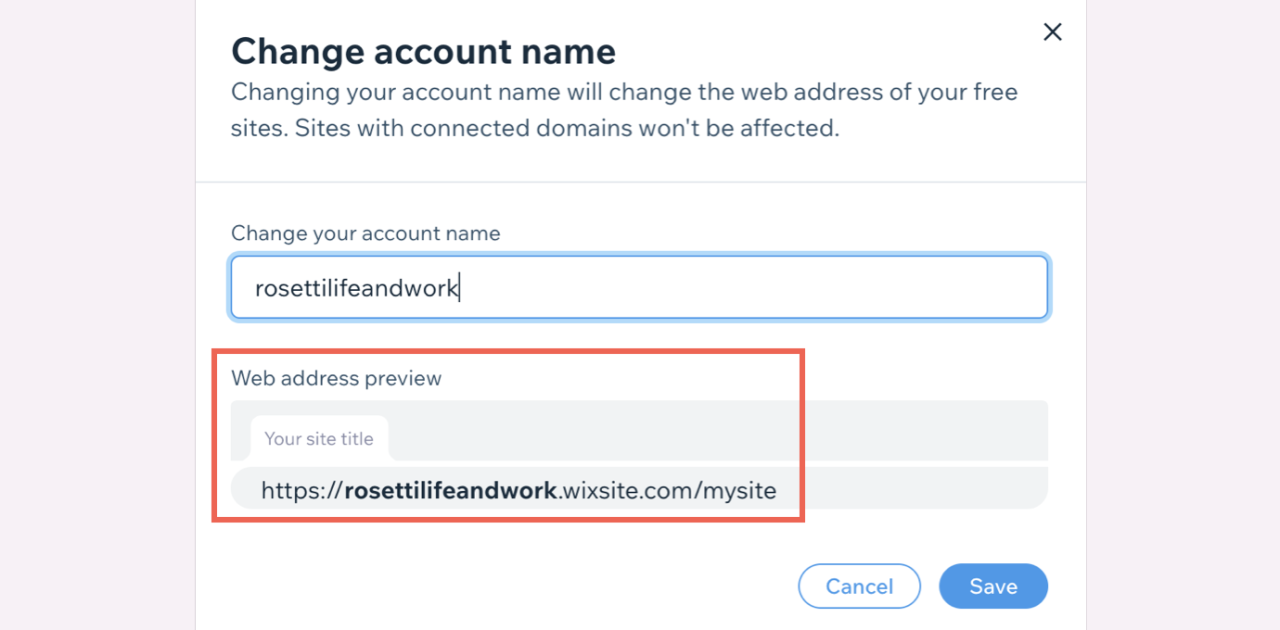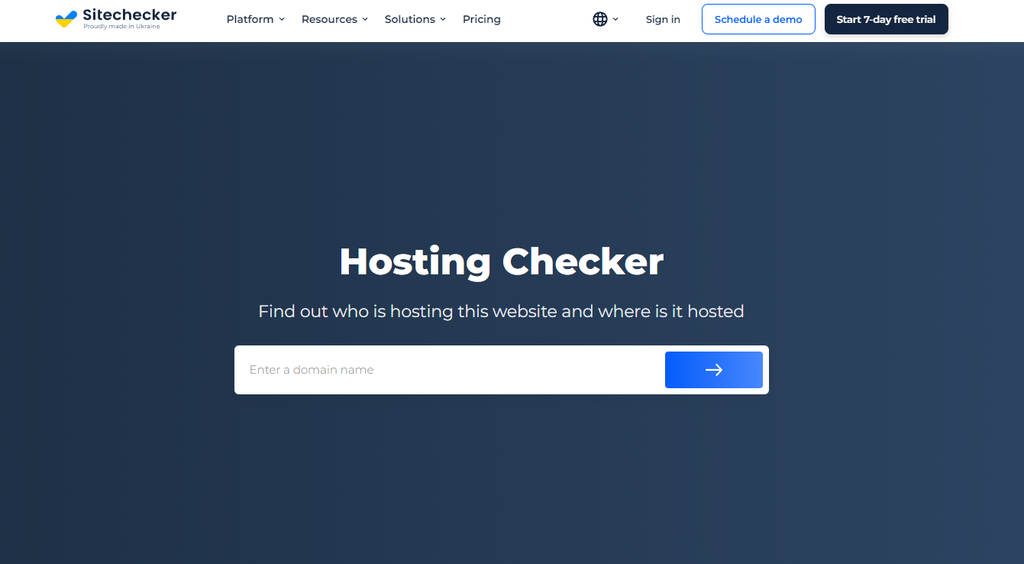Best website hosting for small business is crucial for establishing a strong online presence. It’s the foundation upon which your website thrives, ensuring reliability, security, and scalability to accommodate your growing business needs.
This guide explores the different types of hosting available, highlighting the key features and considerations for small businesses. We’ll delve into choosing the right plan, optimizing website performance, and implementing security best practices.
Understanding Small Business Hosting Needs
A website is crucial for any small business looking to establish an online presence, connect with customers, and grow their business. Choosing the right website hosting plan is essential for ensuring your website performs optimally and meets your specific needs.
Website Functionalities
Small businesses typically require a website that can handle basic functionalities such as displaying company information, showcasing products or services, providing contact information, and allowing customers to make inquiries. Here are some common website functionalities:
- E-commerce: If your business sells products or services online, you’ll need an e-commerce platform integrated with your website. This allows customers to browse, select, and purchase items securely.
- Blog: A blog can be a valuable tool for sharing industry insights, promoting your brand, and engaging with your target audience. It can also help improve your website’s search engine ranking.
- Contact Forms: Contact forms provide a convenient way for visitors to get in touch with your business. This can be a simple form for inquiries or a more detailed form for gathering leads.
- Social Media Integration: Integrating your social media accounts with your website can help you reach a wider audience and drive traffic to your website.
Website Traffic Volume
The amount of traffic your website receives will determine the resources you need from your hosting provider. Small businesses typically start with a moderate amount of traffic, which may gradually increase as their online presence grows.
For example, a newly launched website might receive a few hundred visitors per month, while a well-established business could see thousands or even tens of thousands of visitors each month.
Website Security and Reliability
Security and reliability are crucial for any website, but they are especially important for small businesses. A secure website protects your customers’ sensitive data, such as credit card information, and prevents unauthorized access to your website. A reliable website ensures that your website is always available to your customers, minimizing downtime and potential loss of revenue.
Types of Hosting for Small Businesses
Choosing the right hosting plan for your small business is crucial. It can impact your website’s performance, security, and scalability. There are various types of hosting available, each with its own features, advantages, and disadvantages. Understanding these differences will help you make an informed decision that aligns with your specific needs and budget.
Shared Hosting
Shared hosting is the most affordable option and ideal for small businesses with low traffic and resource requirements. In shared hosting, multiple websites share the same server resources, such as CPU, RAM, and disk space.
Here’s a table summarizing the features, pros, and cons of shared hosting:
| Feature | Pros | Cons |
|---|---|---|
| Cost | Most affordable option | Limited resources and performance |
| Resources | Shared resources with other websites | Can be slow if other websites experience high traffic |
| Security | Shared security measures | Vulnerable to attacks if other websites are compromised |
| Scalability | Limited scalability options | May require upgrading to a different hosting type as your business grows |
Shared hosting offers a cost-effective entry point for small businesses, but it may not be suitable for websites with high traffic or resource-intensive applications.
VPS Hosting
VPS hosting offers a more powerful and flexible solution compared to shared hosting. It provides a virtualized server environment, giving your website dedicated resources and control over the server’s configuration.
Here’s a table summarizing the features, pros, and cons of VPS hosting:
| Feature | Pros | Cons |
|---|---|---|
| Cost | More expensive than shared hosting but cheaper than dedicated hosting | Higher cost compared to shared hosting |
| Resources | Dedicated resources, offering better performance and stability | Limited resources compared to dedicated hosting |
| Security | Improved security due to isolated environment | Requires more technical expertise for configuration and management |
| Scalability | More scalable than shared hosting | May require upgrading to dedicated hosting for significant growth |
VPS hosting provides a balance between cost and performance, making it suitable for businesses with moderate traffic and resource needs.
Dedicated Hosting
Dedicated hosting offers the highest level of performance, security, and control. In dedicated hosting, your website has its own physical server, providing exclusive access to all resources.
Here’s a table summarizing the features, pros, and cons of dedicated hosting:
| Feature | Pros | Cons |
|---|---|---|
| Cost | Most expensive option | High initial investment |
| Resources | Unrestricted access to all server resources | Requires more technical expertise for configuration and management |
| Security | Highest level of security due to dedicated environment | Requires more technical expertise for security management |
| Scalability | Highly scalable, allowing for significant growth | May require additional hardware upgrades for significant growth |
Dedicated hosting is ideal for businesses with high traffic, demanding applications, or critical security requirements. It provides the ultimate performance and control but comes with a higher price tag.
Key Features to Consider
Choosing the right web hosting plan for your small business involves considering a range of essential features that directly impact your website’s performance, security, and overall success. These features ensure your website is reliable, accessible, and protected.
Website Speed and Performance
Website speed is crucial for small businesses. A fast-loading website improves user experience, boosts rankings, and increases conversion rates. Slow websites can lead to frustrated visitors, higher bounce rates, and lost sales.
“A one-second delay in page load time can result in a 7% decrease in conversions.” – Kissmetrics
Several factors contribute to website speed, including:
* Server location: Choosing a server close to your target audience minimizes latency and improves load times.
* Server resources: Adequate CPU, RAM, and storage capacity are essential for handling website traffic and processing requests efficiently.
* Website optimization: Optimizing images, code, and content can significantly improve website speed.
Website Security
Website security is paramount for protecting your business data, customer information, and reputation. A secure website instills trust in visitors and safeguards against potential threats.
- SSL Certificates: An SSL certificate encrypts communication between your website and visitors, ensuring sensitive data like credit card details is protected. This is crucial for e-commerce websites and any site that collects personal information.
- Malware Protection: Malware can compromise your website, steal data, or redirect visitors to malicious sites. Anti-malware software scans your website regularly for threats and helps prevent infections.
- Backups: Regular backups ensure you can restore your website in case of data loss due to hacking, technical errors, or accidental deletion.
Other Essential Features
In addition to website speed and security, consider these essential features:
- Uptime Guarantee: A high uptime guarantee ensures your website remains accessible to visitors, minimizing downtime and potential loss of business.
- Bandwidth Allocation: Adequate bandwidth allows for smooth data transfer between your website and visitors, preventing slow loading times, especially during peak traffic periods.
- Storage Space: Sufficient storage space is necessary to accommodate your website files, images, videos, and other content. Choose a plan that provides ample space for your current and future needs.
- Customer Support: Reliable customer support is essential for resolving technical issues, addressing questions, and ensuring your website remains operational. Look for hosting providers with 24/7 support options, including phone, email, and live chat.
Popular Hosting Providers
Choosing the right hosting provider is crucial for your small business’s online success. A reliable and feature-rich hosting solution can ensure your website performs well, scales with your growth, and provides the security you need. Here’s a look at some of the top hosting providers specializing in small business solutions.
Popular Hosting Providers for Small Businesses
Choosing the right hosting provider is crucial for your small business’s online success. A reliable and feature-rich hosting solution can ensure your website performs well, scales with your growth, and provides the security you need. Here’s a look at some of the top hosting providers specializing in small business solutions.
| Provider Name | Pricing | Key Features | Target Audience |
|---|---|---|---|
| Bluehost | Starting at $2.95/month | Free domain name, free SSL certificate, unlimited storage and bandwidth, 24/7 customer support | Small businesses, bloggers, and individuals |
| HostGator | Starting at $2.75/month | Free domain name, free SSL certificate, unlimited storage and bandwidth, 45-day money-back guarantee | Small businesses, startups, and website designers |
| GoDaddy | Starting at $5.99/month | Wide range of hosting plans, domain name registration, website builder, marketing tools | Small businesses, entrepreneurs, and individuals |
| SiteGround | Starting at $3.95/month | Fast loading speeds, excellent customer support, free daily backups, free SSL certificate | Small businesses, bloggers, and e-commerce stores |
Choosing the Right Hosting Plan
Selecting the ideal hosting plan for your small business is a crucial step in establishing a strong online presence. It involves carefully evaluating your current and future needs, considering your budget, and making informed decisions about the features and resources you require.
Evaluating Your Needs and Budget
Before diving into the world of hosting plans, it’s essential to understand your specific requirements. This includes assessing your website’s current traffic volume, projected growth, and the resources needed to support your online operations.
- Traffic Volume: Consider the average number of visitors your website receives daily, monthly, or annually. This will help you determine the amount of bandwidth and storage space you need.
- Website Complexity: The complexity of your website, including the number of pages, images, and videos, will influence the server resources required.
- Budget: Set a realistic budget for your hosting plan. Consider the long-term costs, including renewal fees and potential upgrades.
The Importance of Scalability
As your business grows, so will your website traffic and resource demands. It’s crucial to choose a hosting plan that can accommodate future expansion. This means selecting a plan that offers scalability, allowing you to easily upgrade your resources as needed.
- Upgrading Resources: Choose a provider that offers seamless upgrades to storage, bandwidth, and other resources without significant downtime or complications.
- Flexibility: Opt for a plan that allows you to adjust your resources based on seasonal fluctuations or unexpected traffic surges.
Starting with a Basic Plan and Upgrading
For many small businesses, starting with a basic hosting plan is a sensible approach. This allows you to test the waters, gain experience, and understand your specific needs before committing to a more expensive plan.
- Cost-Effective: Basic plans are generally more affordable, making them an attractive option for startups and businesses with limited budgets.
- Flexibility: As your website grows, you can seamlessly upgrade to a higher-tier plan that meets your evolving needs.
Website Performance Optimization
A website’s performance directly impacts user experience and search engine ranking. A slow-loading website can lead to frustrated users, decreased engagement, and lower conversion rates. Optimizing website performance involves various techniques to enhance loading speed, improve user experience, and ultimately boost your business’s online presence.
Caching Mechanisms
Caching is a technique that stores copies of frequently accessed website data on a server closer to users, reducing the need to retrieve information from the original source. This significantly speeds up page loading times, especially for users located geographically distant from the website’s primary server.
There are two main types of caching:
- Browser caching: When a user visits a website, the browser stores copies of static files like images, CSS, and JavaScript on the user’s device. The next time the user visits the same website, the browser loads these files from the local cache instead of fetching them from the server, leading to faster loading times.
- Server-side caching: This involves storing copies of frequently accessed website data on the server itself. When a user requests a page, the server delivers the cached version instead of processing the request from scratch. This significantly reduces server load and improves response times.
Content Delivery Networks (CDNs)
CDNs are geographically distributed networks of servers that deliver website content to users based on their location. By distributing content across multiple servers, CDNs reduce latency and improve website loading speeds.
Here’s how CDNs work:
- When a user requests a website, the CDN’s edge server closest to the user’s location delivers the content.
- If the content is not cached on the edge server, the CDN retrieves it from the origin server and caches it for future requests.
- This process ensures that users receive content from the nearest server, minimizing network latency and improving loading times.
Website Optimization and Search Engine Ranking
Search engines like Google prioritize websites that load quickly and provide a positive user experience. Website performance is a crucial factor in search engine optimization (), as it directly affects a website’s ranking in search results.
Here’s how website optimization impacts :
- Faster loading times: Google considers website speed as a ranking factor. A fast-loading website improves user experience and reduces bounce rates, signaling to Google that the website is valuable.
- Improved user engagement: A website that loads quickly encourages users to explore and interact with the content, leading to higher engagement metrics such as time spent on site and pages per session.
- Increased crawl rate: Search engine crawlers prioritize websites that load quickly and efficiently. A fast-loading website allows crawlers to access and index the website’s content more efficiently, improving its visibility in search results.
Website Security Best Practices
In the digital landscape, where online threats are ever-present, securing your website is crucial for any small business. A compromised website can lead to data breaches, financial losses, and reputational damage. This section will explore common website security threats, practical steps for securing your website, and the importance of website backups.
Common Website Security Threats
Understanding the common threats that your website might face is the first step towards protecting it.
- Malware Infections: Malware, such as viruses, worms, and trojans, can infiltrate your website and compromise its functionality, steal sensitive data, or redirect visitors to malicious sites.
- SQL Injection Attacks: These attacks exploit vulnerabilities in web applications to gain unauthorized access to databases and manipulate data.
- Cross-Site Scripting (XSS) Attacks: XSS attacks inject malicious scripts into websites, allowing attackers to steal user credentials, hijack sessions, or manipulate website content.
- Denial-of-Service (DoS) Attacks: DoS attacks aim to overload a website with traffic, making it inaccessible to legitimate users.
- Brute Force Attacks: These attacks involve repeatedly trying different passwords to gain access to accounts or systems.
Securing Your Website
Securing your website involves implementing a multi-layered approach to minimize the risk of attacks.
- Strong Passwords: Use strong passwords for all your website accounts, including administrative panels, hosting accounts, and email accounts. A strong password should be at least 12 characters long, include a combination of uppercase and lowercase letters, numbers, and symbols, and should not be easily guessable.
- Regular Updates: Keep your website software, plugins, and themes updated regularly. Updates often include security patches that address vulnerabilities and protect against known threats.
- Security Plugins: Install and configure security plugins to enhance your website’s protection. These plugins can help detect and prevent malware infections, block malicious traffic, and monitor for suspicious activity.
- HTTPS: Use HTTPS (Hypertext Transfer Protocol Secure) to encrypt the communication between your website and visitors. This ensures that sensitive information, such as credit card details, is transmitted securely.
- Two-Factor Authentication: Enable two-factor authentication (2FA) for your website accounts, which adds an extra layer of security by requiring a second verification step, typically a code sent to your mobile device.
Website Backup Strategy
Data loss can be devastating for any business. Implementing a website backup strategy is crucial to ensure that you can recover your website and data in case of a security breach, technical error, or natural disaster.
- Regular Backups: Regularly back up your website files and database. Backups should be performed frequently, ideally daily or even multiple times a day for critical data.
- Multiple Backup Locations: Store backups in multiple locations, such as a cloud storage service or an external hard drive. This ensures that your backups are protected from data loss due to hardware failure or other incidents.
- Backup Testing: Regularly test your backup process to ensure that you can restore your website and data successfully.
Managing Website Content and Updates

Regularly updating your website content is essential for keeping it fresh, engaging, and relevant to your audience. This can help you attract new customers, improve your search engine ranking, and ultimately grow your business.
Using Content Management Systems (CMS)
A CMS is a software application that makes it easier to create, manage, and update website content. Popular CMS options include WordPress, Drupal, and Joomla. Using a CMS can streamline your content management process, allowing you to easily add new pages, posts, and images, as well as edit existing content.
Scheduling Tools
Scheduling tools can help you plan and automate your content updates. These tools allow you to schedule posts, tweets, and other content in advance, ensuring that your website is regularly updated with fresh content. Examples of scheduling tools include Hootsuite, Buffer, and CoSchedule.
Website Maintenance and Updates, Best website hosting for small business
Regular website maintenance and updates are crucial for ensuring the security and performance of your website. Updates can include installing security patches, updating software, and optimizing website performance. Failing to update your website can leave it vulnerable to security threats and make it slower for visitors to access.
Customer Support and Technical Assistance
For small businesses, a reliable website is crucial for success. This means having a hosting provider that offers excellent customer support and technical assistance to ensure your website runs smoothly and efficiently.
When things go wrong, you need someone to help you fix them quickly and effectively. A hosting provider with strong customer support can be a lifesaver, preventing downtime, resolving technical issues, and ensuring your website stays online and accessible to your customers.
Types of Customer Support
Hosting providers offer a range of customer support options, each with its own advantages and disadvantages.
Choosing the right website hosting for your small business is crucial for its online presence. You need a platform that’s reliable, secure, and scalable to accommodate your growing needs. And if you’re looking to add a personal touch to your brand, consider showcasing your creativity with DIY clothes on your website.
This unique approach can attract customers and build a strong brand identity. Ultimately, the best website hosting for your small business should be one that supports your vision and allows you to connect with your target audience effectively.
- Live Chat: Live chat is a real-time communication method that allows you to connect with a support agent instantly through a chat window on your website. It’s ideal for quick questions or issues that don’t require extensive troubleshooting.
- Email: Email support is a more traditional method, but it can be slower than live chat. You send an email explaining your issue and wait for a response, which may take several hours or even days, depending on the hosting provider’s response time.
- Phone: Phone support provides a more personal touch and allows for faster resolution of complex issues. However, it can be challenging to get through to a representative during peak hours, and you may have to wait on hold for a significant period.
Benefits of 24/7 Customer Support
Choosing a hosting provider that offers 24/7 customer support provides several key advantages for small businesses:
- Immediate Assistance: With 24/7 support, you can access help whenever you need it, regardless of the time of day or night. This is particularly important for businesses operating in different time zones or experiencing unexpected website issues outside of regular business hours.
- Reduced Downtime: A hosting provider with 24/7 support can quickly diagnose and resolve technical issues, minimizing downtime and ensuring your website stays online and accessible to your customers. This is crucial for businesses that rely on their website for sales, marketing, or customer service.
- Peace of Mind: Knowing that you have access to support around the clock provides peace of mind, allowing you to focus on running your business without worrying about potential website problems.
Budget and Cost Considerations: Best Website Hosting For Small Business
Choosing the right web hosting plan for your small business involves careful consideration of budget and cost factors. While the initial cost might seem tempting, understanding the long-term financial implications is crucial for sustainable success.
Cost Factors in Hosting Plans
The cost of web hosting for small businesses can vary significantly depending on the chosen plan and provider. It’s essential to consider the following cost factors:
- Setup Fees: Some hosting providers charge a one-time setup fee for activating your account. This fee can range from a few dollars to several hundred dollars, depending on the hosting plan and provider.
- Monthly Fees: The most significant cost factor is the recurring monthly fee for your hosting plan. Monthly fees can range from a few dollars for basic shared hosting to several hundred dollars for dedicated servers, depending on the features, resources, and support included.
- Additional Services: Many hosting providers offer additional services that can impact your overall costs. These services might include domain registration, SSL certificates, website backups, email accounts, and website security features.
Comparing Pricing and Features
Comparing pricing and features across different hosting providers is essential for finding the best value for your money. Here’s a breakdown of the process:
- Identify Your Needs: Before comparing prices, determine your specific website needs, such as traffic volume, storage requirements, and desired features.
- Research Hosting Providers: Explore reputable hosting providers known for reliability, security, and customer support. Websites like HostAdvice and WebHostingReview offer detailed comparisons and user reviews.
- Compare Pricing and Features: Once you’ve shortlisted a few providers, compare their pricing plans, features, and additional services. Look for transparent pricing, clear feature descriptions, and comprehensive support options.
- Consider Long-Term Costs: Don’t solely focus on the initial monthly fee. Factor in potential costs for additional services, website updates, and future scalability needs.
Budget Efficiency Tips
Here are some practical tips for maximizing budget efficiency when choosing a hosting plan:
- Start with a Shared Hosting Plan: For new websites with low traffic, a shared hosting plan can be a cost-effective option. It allows multiple websites to share server resources, resulting in lower monthly fees.
- Negotiate Prices: Don’t hesitate to negotiate prices, especially if you’re committing to a long-term contract. Many hosting providers offer discounts for annual or multi-year subscriptions.
- Utilize Free Services: Take advantage of free services offered by some hosting providers, such as free domain registration, SSL certificates, or website backups.
- Optimize Website Performance: A well-optimized website can reduce server load and potentially lower hosting costs.
- Monitor Your Usage: Regularly monitor your website’s resource usage, such as storage space and bandwidth. This can help you identify potential areas for optimization or upgrade your plan if needed.
Final Conclusion

By understanding your needs, researching hosting providers, and implementing website optimization techniques, you can confidently select the best website hosting solution for your small business. This investment will empower you to build a robust online presence, attract new customers, and drive your business forward.




